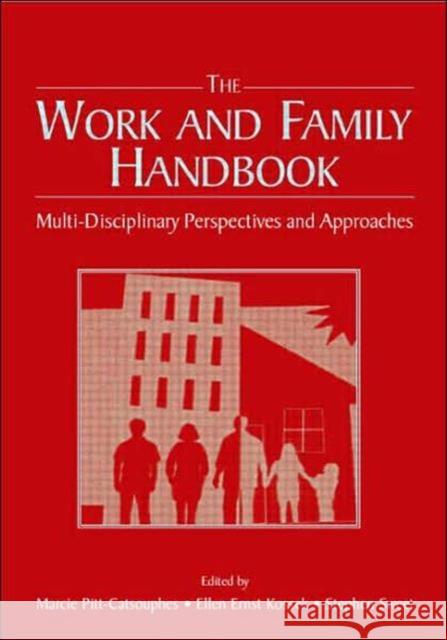The Work and Family Handbook: Multi-Disciplinary Perspectives and Approaches » książka
The Work and Family Handbook: Multi-Disciplinary Perspectives and Approaches
ISBN-13: 9780805850253 / Angielski / Twarda / 2005 / 816 str.
The Work and Family Handbook: Multi-Disciplinary Perspectives and Approaches
ISBN-13: 9780805850253 / Angielski / Twarda / 2005 / 816 str.
(netto: 1212,77 VAT: 5%)
Najniższa cena z 30 dni: 1208,97
ok. 22 dni roboczych.
Darmowa dostawa!
The Work and Family Handbook is a comprehensive edited volume, which reviews a wide range of disciplinary perspectives across the social sciences on the study of work-family relationships, theory, and methods. The changing demographics of the labor force has resulted in an expanded awareness and understanding of the intricate relations between work and family dimensions in people's lives. For the first time, the efforts of scholars working in multiple disciplines are organized together to provide a comprehensive overview of the perspectives and methods that have been applied to the study of work and family. In this book, the leading work-family scholars in the fields of social work, psychology, sociology, organizational behavior, human resource management, business, and other disciplines provide chapters that are both accessible and compelling. This book demonstrates how cross-disciplinary comparisons of perspective and method reveal new insights on the needs of working families, the challenges faced by those who study them, and how to formulate policy on their behalf.
The Work and Family Handbook is a comprehensive edited volume, which reviews a wide range of disciplinary perspectives across the social sciences on the study of work-family relationships, theory, and methods. The changing demographics of the labor force has resulted in an expanded awareness and understanding of the intricate relations between work and family dimensions in people's lives. For the first time, the efforts of scholars working in multiple disciplines are organized together to provide a comprehensive overview of the perspectives and methods that have been applied to the study of work and family. In this book, the leading work-family scholars in the fields of social work, psychology, sociology, organizational behavior, human resource management, business, and other disciplines provide chapters that are both accessible and compelling. This book demonstrates how cross-disciplinary comparisons of perspective and method reveal new insights on the needs of working families, the challenges faced by those who study them, and how to formulate policy on their behalf.











